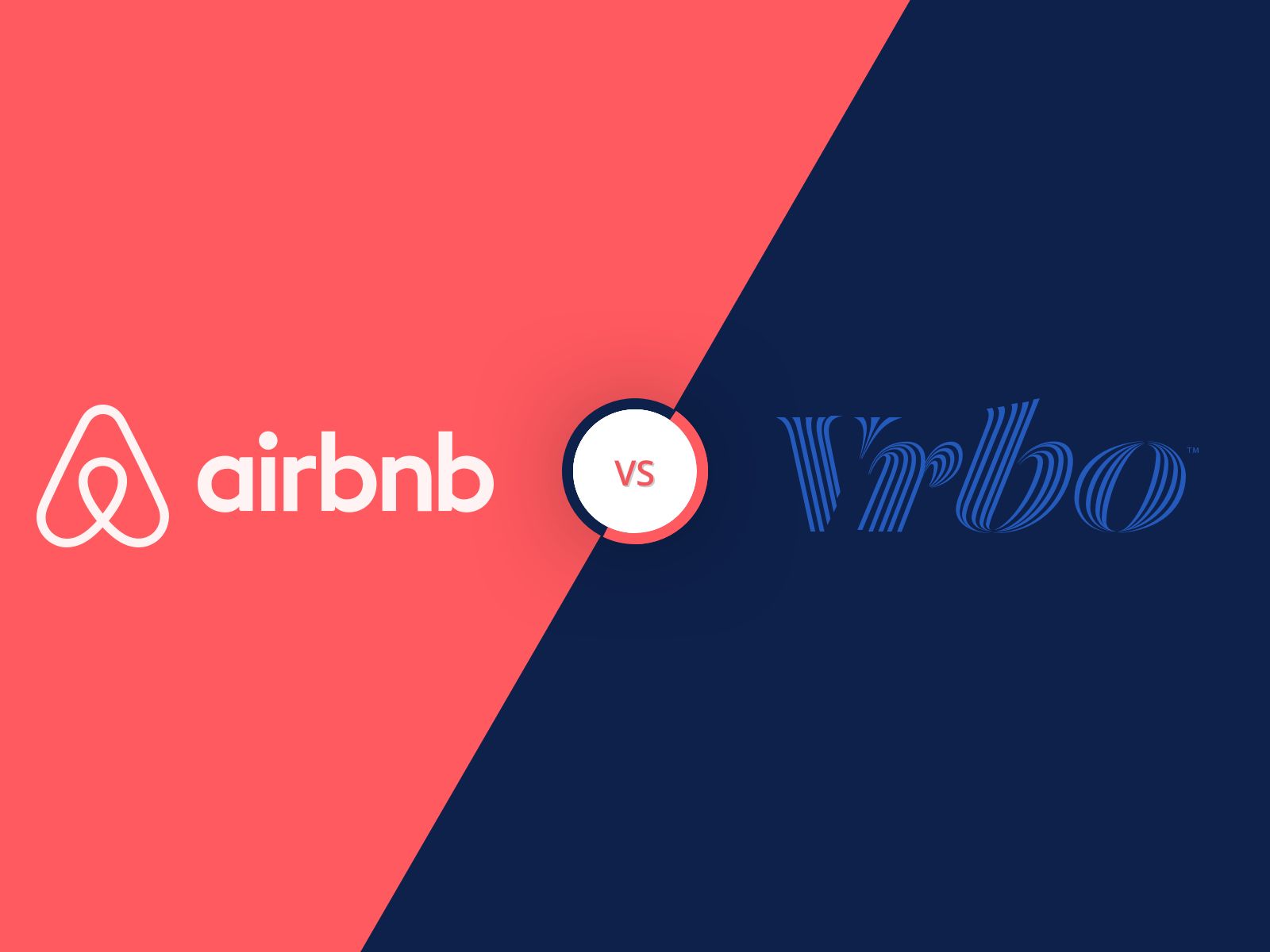For new property managers to make a name for themselves in an industry full of uncertainty, one big question persists quickly: Vrbo or Airbnb?
These two companies come up in any Google search or conversation about the topic, but which is better? What is the most affordable or user-friendly option? What is better for a host to list their property on? Airbnb and Vrbo are two popular vacation rental platforms among visitors and property owners. As a visitor, you may be intrigued to learn which of these platforms may meet your specific requirements and assist you in planning your ideal holiday. When deciding where to market your home, though, you may ask which of these two methods would provide better results for your short-term rental company.
We compared Airbnb and Vrbo and looked at their essential features, differences, benefits, and drawbacks to help you decide. Continue reading to see which of these two places would be a better fit for your company or your next trip.
Facts and Figures about Airbnb vs. Vrbo
At first sight, Airbnb and Vrbo seem to be quite similar, with many of the same features for both hosts and visitors. They were both created to provide an alternative to staying in a hotel.
Since its inception in 2008, Airbnb has grown to include over 6 million listings in over 200 countries. Vrbo (formerly Vacation Rental by Owner) was formed in 1995 and is now owned by the Expedia Group. On Vrbo, there are over 2 million listings in 190 countries.
On the other hand, Airbnb has swiftly established itself as a rental platform that provides visitors with more unique experiences than other holiday rental companies.
While Airbnb has more listings and services in more countries, putting your vacation rental home on Vrbo might offer you additional visibility.
It’s critical to provide faultless vacation rental administration and excellent communication, regardless of which rental platform you use or if you decide to post on both.
Lodgable is vacation rental software for professional hosts that can help you manage bookings on Airbnb, Vrbo, and other popular short-term rental sites like Booking.com via a single simplified interface. It provides hosts and property managers with several capabilities, like a powerful multi-calendar, dynamic pricing, websites, and much more, to help them manage multiple listings efficiently while saving time.
Vacation Rental Types: Airbnb vs. Vrbo
The property categories offered on each site reveal significant disparities between Airbnb and Vrbo.
Vacation Rentals on Vrbo
Vrbo, on the other side, provides more typical lodging. Vrbo exclusively takes reservations for freestanding vacation homes and does not allow advertising of shared spaces of any type since it caters to families.
As a result, Vrbo is more appealing to large families traveling together and renting a whole house.
While Vrbo and Airbnb offer short-term rentals, Vrbo homes are better suited for longer stays. Airbnb is a fantastic alternative for folks traveling for a short time. Some Airbnb homes, though, may provide discounts for longer stays.
Vacation Rentals on Airbnb
Airbnb lets hosts and property managers post anything from single rooms, cabins, and little dwellings to magnificent villas and castles.
This often implies that guests seeking more unusual and particular property types will have an easier time finding them on Airbnb. Additionally, hosts may offer shared apartments on Airbnb. This implies that tourists may reserve particular rooms inside a home instead of paying for a complete house.
Service Fees on Airbnb vs. Vrbo
Regardless of where you choose to market your home, hosts and visitors must pay service fees. Service fees may have an impact on your total short-term rental income as well as the final amount that a visitor pays for a reservation. Here’s a short rundown of what’s going on:
Service Fees for Vrbo
When making a reservation, travelers pay a guest service charge that ranges from 6% to 12% of the total reservation cost.
Hosts may select between two service charge models based on their expected yearly revenue. They may pay a $499 yearly membership fee to cover all of their bookings on the site for the whole year.
Another alternative is to pay a charge for each reservation. In this instance, hosts are charged a 5% commission plus a 3% credit card processing fee per booking.
The yearly subscription may assist a host to save money on hosting expenses if they can guarantee that they will book more than the required number of reservations to pay the costs. As a result, if you’re a full-time, year-round presenter with an annual salary of more than $10,000, a subscription model makes more sense.
Service Charges on Airbnb
Airbnb’s two service cost alternatives are split charges and the host-only fee.
As the name implies, the split fee halves the service charge between the visitor and the host. Guests will often absorb the majority of the expenses under this approach, typically paying around 14% of the booking subtotal as an extra charge. In this situation, hosts pay about 3% of the overall booking fee, although this might be more if they choose Strict cancellation conditions.
The host-only cost covers the full-service fee paid to Airbnb by the owner, saving guests from paying a guest service fee. This usually amounts to 14-16 percent of the overall booking price. A separate credit card processing fee is not applied to Airbnb hosts.
For hotels, the host-only charge is required. It’s also required for software-connected hosts unless most of their listings are in the US, Canada, the Bahamas, Mexico, Argentina, Taiwan, or Uruguay.
Higher costs may apply to Airbnb Plus hosts and those who choose Super Strict cancellation conditions. A 20% service fee is applied to each Airbnb homeowner who provides Airbnb Experiences.
The advantage of the host-only charge is that visitors are not surprised by extra service costs that are levied only at checkout. To offset the host-only charge, hosts may always increase the price of their property somewhat. In this manner, visitors are aware of the whole price and eager to pay it without feeling taken advantage of.
The Cancellation Policy of Vrbo vs. Airbnb
Both Airbnb and Vrbo have cancellation policies in place to safeguard hosts from the negative effect of unexpected cancellations and to provide guests with a refund if they cancel within a reasonable amount of time.
When booking a reservation, visitors should read the listing carefully to learn the host’s cancellation policy. Take a good look at the insurance you’ve chosen and read through all the terms and conditions.
Cancellation Policy for Vrbo
Vrbo allows hosts to establish five different cancellation policies for their listings: Relaxed, Moderate, Firm, Strict, and No Refund. Some of these solutions enable visitors to get a refund, while others don’t. The flexible cancellation policy at Vrbo enables customers to cancel a reservation up to 14 days before check-in and get a full refund.
According to the no refund policy, guests are not entitled to a refund under any conditions or period.
Airbnb Cancelation Policy
There are three main types of cancellation policies offered by Airbnb: Flexible, Moderate, and Strict. In addition, three further policies are available, including Super Strict (30 days), Super Strict (60 days), and Long-term. Flexible is the most popular option. If a guest cancels a reservation 24 hours before the check-in time, the hotel will refund the full amount.
It is more common for guests to choose listings with the Flexible policy because they know they can cancel their reservation and receive a refund. We make the booking process easy and stress-free. Therefore, opting for the Flexible Cancellation Policy often leads to an increased number of reservations and higher occupancy rates. In the event that a host is unable to find a replacement guest, a loss of profit may result from this policy.
Vrbo vs. Airbnb: Audience and Selection
Another issue to examine is the amount and kind of tourists that a vacation rental site draws and the number of homes available to guests.
For hosts, the ideal approach is to invest time and effort in a platform that gets a lot of high-quality traffic. Airbnb receives almost double the amount of traffic Vrbo receives each month, giving it the upper hand.
Similarly, visitors will flock to the vacation rental website with the largest assortment of homes. Airbnb substantially outnumbers Vrbo regarding the number of homes accessible to tourists, with over 5.6 million listings – more than twice that of Vrbo.
You should consider the sort of audience a website receives in addition to total website traffic. You must ensure that visitors to your website are likely to be interested in the sort of property you have to offer.
In terms of audience, here’s how Airbnb and Vrbo compare:
Guest Profiles on Airbnb
Airbnb appeals to folks in their twenties and thirties looking for more economical holiday homes. It also attracts travelers who prefer a journey full of new experiences over a standard hotel stay.
Airbnb tends to attract customers who want to rent a home in a city for a short time at a reasonable price. It also caters to business travelers searching for comfortable rooms in metropolitan locations with all essential amenities.
Guest Profile on Vrbo
Travelers looking to book stays in classic vacation spots go to sites like Vrbo, which has a huge inventory of houses in tourist areas.
Vrbo is primarily aimed at families and elderly audiences prepared to pay for a whole home. Setting up a listing on Vrbo will be a wise decision for your company if your home is kid-friendly and can accommodate a big family or group.
Making Reservations on Vrbo compared to Airbnb
Booking feature is available on both Airbnb and Vrbo’s websites, enabling visitors to book accommodations with either the property owner or property manager of each listing.
Both sites now have a convenient, immediate booking option. For visitors, this makes the reservation procedure significantly easier. It removes the need to make a booking request and wait for the owner’s permission instead of allowing customers to book vacation rental homes instantaneously, as the name implies.
Vrbo vs. Airbnb: Comparisons
While ratings are essential on both sites, there are several crucial distinctions to consider when comparing Airbnb and Vrbo.
Airbnb Customer Reviews
The Airbnb review system is built on a five-star rating system that asks visitors to score the listing description accuracy, cleanliness, communication, location, check-in, and value for money. Both the visitor and the host have 14 days to leave a review. Airbnb encourages visitors to submit evaluations after their stay, facilitating the review culture.
If visitors have specific concerns about Airbnb, they may filter lodgings based on reviews to discover the greatest fit for their needs before making a reservation.
Vrbo Customer Reviews
A visitor or a host may post a review up to one year after their stay. However, after one party has filed a review, the other party has 14 days to respond with their evaluation.
Guests may score their experiences on a five-star scale and provide feedback to assist future visitors. The biggest distinction from Airbnb is that in the review area, hosts’ comments to guest reviews are published. It’s useful for visitors who want to see the whole picture and learn more about other people’s opinions before booking a reservation.
Vrbo vs. Airbnb: Special Features
While most of the features of rental sites like Vrbo and Airbnb are quite similar, each site has its unique features and distinctions.
Special Features of Airbnb
In addition to short-term rentals, Airbnb Experiences allows visitors to arrange unique experiences in some of the world’s most attractive cities and famous tourist attractions.
Airbnb Experiences are one-of-a-kind activities that visitors may participate in when visiting a certain location. Guests might, for example, schedule a culinary session with a local host or go on an expedition with a local guide to uncover the destination’s hidden delights and sites. Travelers will have a fully unique and engaging experience due to this.
Special Features of Vrbo’s
Vrbo’s competitive advantage comes from some of the site’s added features.
When visitors narrow down homes they want to stay in, it features a powerful search filter that outperforms Airbnb.
In addition, Vrbo has a Trip Board function that allows users to arrange their favorite places and houses while planning their journeys. If guests plan a vacation together, they may even invite friends and family to participate on the boards and look for houses.
Summary of the Differences Between Airbnb and Vrbo
Let’s look at all of the distinctions and unique features that these two platforms have to offer.
Airbnb
Guests may choose from a variety of properties, including odd and expensive alternatives and economical single rooms and communal flats.
Compared to other vacation rental sites, the host charge is one of the lowest.
Airbnb now provides Airbnb Experiences in addition to rentals.
It’s ideal for city slickers and adventure seekers.
Vrbo
It has fewer listings, which implies fewer possibilities for customers, but a larger selection of upmarket lodging options.
There are only private, whole-house accommodations available.
Families and big groups are catered to.
Provides hosts with two pricing models to select from.
For hosts, it’s evident that the website you choose will be determined by the sort of property you provide and the target visitor you have in mind.
If you are fortunate enough to rent out a whole space, we propose that you advertise your property on both platforms to maximize your exposure. This will increase the occupancy rate of your property and help you optimize your earnings.
Once you’ve begun to reap the benefits of both sites, take it a step further and use Lodgable’s channel manager to streamline the process of managing your properties across several platforms.









